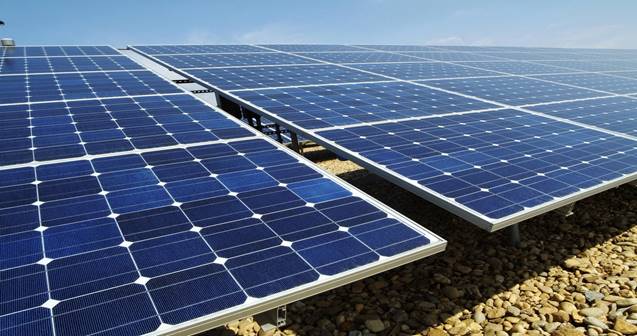The European Bank for Reconstruction and Development (EBRD) has agreed to finance a 100 MW solar photovoltaic plant with $60 million in the Navoi region of Uzbekistan.
The project, which is described by the lender as one of the first two privately owned renewable energy projects in the country, is owned by the special purpose vehicle Nur Navoi Solar Holding and will be developed by UAE-based Masdar, which is a unit of Mubadala Investment Company, an investment holding fully owned by the government of Abu Dhabi.
“This innovative financial structure is currently not available from international or domestic lenders in Uzbekistan,” said the EBRD in a press release. “It will be complemented by a financial package of up to US$60 million arranged by the International Finance Corporation (IFC) and the Asian Development Bank (ADB).” The World Bank is also providing a $5.1 million payment guarantee to backstop the payment obligations under the project.
Popular content
Uzbekistan is targeting 5 GW of PV installations by 2031 as it aims to cover 21% of its energy demand with renewables. Currently, gas accounts for almost 76% of its electricity demand, while fuel oil and coal account for 7% and 6%, respectively. Overall, the country’s total power generation capacity stands at around 12.6 GW.
A series of planned tenders up to 2022 will kick off with a 1.4 GW procurement round this year that will aim to secure 600 MW of PV capacity across Jizzakh, Samarkand and Surxondaryo plus 800 MW in other locations. The tender program, which will award successful developers 25-year power purchase agreements, will be backed by international lenders including the Asian Development Bank, the World Bank and the EBRD.
This content is protected by copyright and may not be reused. If you want to cooperate with us and would like to reuse some of our content, please contact: editors@pv-magazine.com.



1 comment
By submitting this form you agree to pv magazine using your data for the purposes of publishing your comment.
Your personal data will only be disclosed or otherwise transmitted to third parties for the purposes of spam filtering or if this is necessary for technical maintenance of the website. Any other transfer to third parties will not take place unless this is justified on the basis of applicable data protection regulations or if pv magazine is legally obliged to do so.
You may revoke this consent at any time with effect for the future, in which case your personal data will be deleted immediately. Otherwise, your data will be deleted if pv magazine has processed your request or the purpose of data storage is fulfilled.
Further information on data privacy can be found in our Data Protection Policy.